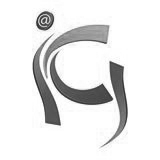
To describe a standard operating procedure (SOP) for maintenance of an equipment in the desired temperature range.
1.0 PURPOSE:
To describe a standard operating procedure (SOP) for maintenance of an equipment in the desired temperature range.
2.0 SCOPE:
The SOP describes in detail the method of maintenance of an equipment in the desired temperature range.
3.0 RESPONSIBILITY:
The responsibility of maintenance of an equipment in the desired temperature range as per the SOP lies with the staff of the rank not lower than operator of the production department.
The responsibility of preparing, reviewing and approving the SOP lies with the Officer (Production), Head of Production and Head of QAD respectively.
4.0 METHOD:
4.1 MAINTENANCE BELOW 25 DEGREE C.
4. 1.1 Check whether jacket is empty and close jacket drain valve.
4. 1.2 Open jacket outlet pipe and keep in service manifold drainage. Connect inlet hose pipe to chilled water inlet valve.
4.1.3 Open chilled water inlet valve slowly and allow water to be filled in the jacket.
4.1.4 After water came out from jacket outlet line hose pipe, close the chilled water inlet valve. Connect the outlet hose pipe to chilled water outlet valve. Open the chilled water outlet and inlet valves to allow the chilled water to circulate in the jacket.
4.1.5 Close the inlet and outlet valves, when the temperature reaches the upper limit in the range.
4.1.6 Check the temperature at regular intervals with thermometer.
4.1.7 If the temperature reaches the upper limit in the range, open the inlet and outlet valves of chilled water, till the temperature reaches 2 degree C less than upper limit and close the chilled water valves.
4.2 MAINTENANCE BELOW 15 DEGREE C.
4.2.1 Remove chilled water from jacket through drain valve.
4.2.2 Close the jacket drain valve.
4.2.3 Open jacket outlet pipe and keep in service manifold drainage. Connect inlet hose pipe to brine inlet valve.
4.2.4 Open brine inlet valve and allow brine to be filled in the jacket.
4.2.5 After brine came out from jacket outlet line hose pipe, close the brine inlet valve. Connect the outlet hose pipe to brine outlet valve. Open the brine outlet and inlet valves to allow the brine to circulate in the jacket.
4.2.6 Close the inlet and outlet valves, when the temperature reaches the upper limit in the range.
4.2.7 Check the temperature at regular intervals with thermometer.
4.2.8 If the temperature reaches the upper limit in the range, open the inlet and outlet valves of brine, till the temperature reaches 2 degree C less than upper limit and close the brine valves.
4.3 MAINTENANCE ABOVE 30 DEGREE C.
4.3.1 Empty the jacket of water/brine by opening jacket drain valve (if the brine is there in the jacket, drain the brine through jacket brine valve. After draining brine, clean the jacket by circulating tower water and drain. Close jacket drain valve. Open jacket outlet pipe and keep in service manifold drainage. Connect inlet hose pipe to tower water inlet valve. Open tower water inlet valve and allow water to be filled in the jacket. After water came out from jacket outlet line hose pipe, close the tower water inlet valve. Remove water from jacket through drain valve).
4.3.2 Connect the jacket outlet line hose pipe to steam valve. Close the jacket inlet valve. Close the jacket drain valve and open steam trap.
4.3.3 Open the steam valve slowly, when the temperature of the reaction mass reaches 5 degree C. below the lower limit of desired temperature range, close the steam valve and observe the raise in temperature.
Note: In case the temperature raises above the upper limit in the range, remove the hose from the steam valve and keep in service manifold drainage. Open the jacket inlet valve and connect the hose pipe to tower water inlet valve and open inlet valve.
4.3.4 If temperature reaches the lower limit of desired temperature range, open the steam valve slowly, till the temperature reaches 2 degree C less than the upper limit and then close steam valve.
4.4 MAINTENANCE AT ROOM TEMPERATURE.
4.4.1 Check whether jacket is empty. If jacket is not empty proceed to step 4.4.2.
4.4.2 Empty the jacket of water/brine by opening jacket drain valve (if the brine is there in the jacket, drain the brine through jacket brine valve. After draining brine, clean the jacket by circulating tower water and drain. Close jacket drain valve. Open jacket outlet pipe and keep in service manifold drainage. Connect inlet hose pipe to tower water inlet valve. Open tower water inlet valve and allow water to be filled in the jacket. After water came out from jacket outlet line hose pipe, close the tower water inlet valve. Remove water from jacket through drain valve).
4.4.3 Open jacket outlet pipe and keep in service manifold drainage. Connect inlet hose pipe to tower water inlet valve. Close the jacket drain valve.
4.4.4 Open tower water inlet valve and allow water to be filled in the jacket.
4.4.5 After water came out from jacket outlet line hose pipe, close the tower water inlet valve. Connect the outlet hose pipe to tower water outlet valve. Open the tower water outlet and inlet valves to allow the water to be collected in the tower water sump.
4.4.6 If the temperature reaches room temperature allow it to maintain at the temperature only.
5.0 RECORDING:
The temperature readings will be recorded by the operator/supervisor in the temperature record attached to the batch manufacturing sheet.
Temperature range, production, temperature